
Spring is in the air!
Springtime is associated with new life and new beginnings. Flowers bloom, the longer days provide life-giving sunshine, and eggs are everywhere!
If fertility is on your mind this Spring, you are in the right place.
Did you know male infertility causes up to half of all cases of infertility globally? This blog post will discuss the research on several botanicals that can naturally boost fertility in men - continue reading below for more information!
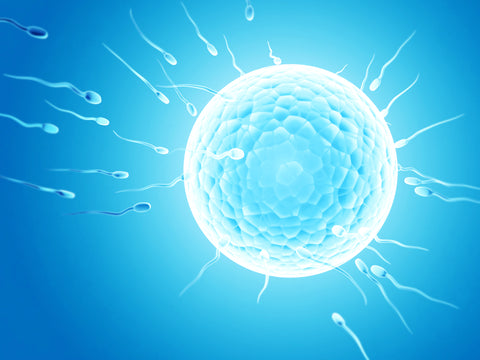
Male Infertility
Infertility is a common and complex health concern that affects both men and women. According to the World Health Organization (WHO), 60-80 million couples experience infertility worldwide, which translates to approximately 1 in 6 couples of reproductive age. Infertility is diagnosed once a couple is unable to conceive a child after one year of unprotected sexual intercourse.
According to research, approximately 40% of infertility cases are caused by female factors, 20-50% by male factors, and 25% of infertility cases have an unknown cause. Thus, male infertility could be the underlying cause of up to half of all cases of infertility globally.
Male infertility can be attributed to pre-testicular, testicular, post-testicular, or unknown factors. Pre-testicular concerns include dysfunction in the hypothalamus-pituitary-gonadal (HPG) axis, sexual dysfunction, psychiatric issues, or systemic health concerns.
Testicular dysfunction can be caused by exposure to toxins, such as cigarettes, heavy metals, radiation, and drugs; varicocele; chromosomal anomalies; trauma; infection; or cryptorchidism. Sperm abnormalities cause 30-40% of all cases of infertility.
Post-testicular issues are characterized by ineffective sperm transfer, which can be caused by obstruction, hypospadias, immunological defects, dysfunction of the ductus deferens (vas deferens) and epididymis, and other anatomical abnormalities.
Fortunately, research shows several natural botanicals support optimal sperm production and healthy male fertility, including Ginger, Maca, and Ashwagandha.1
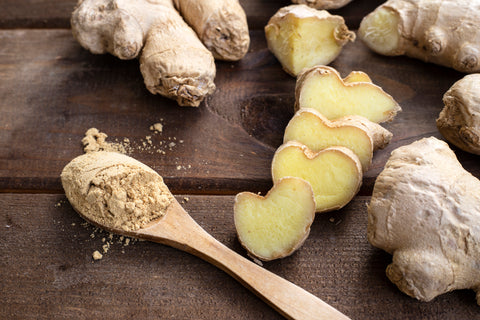
Ginger, Testosterone, and Male Fertility
Research shows ginger is the most-used herbal remedy in many countries. There are over 400 different phytonutrients in ginger, which include phenolic compounds, terpenes, lipids, and carbohydrates. The many benefits offered by ginger are mostly attributed to the phenolic compounds and the terpenes.2
An abundance of supportive evidence confirms ginger improves several sperm health parameters, including the count, viability, motility, morphology, and DNA integrity, to boost semen quality. Research shows ginger improves male fertility and semen quality via decreased production of free radicals, reduced oxidative stress, and improved hormone levels. Yes, ginger boosts the production of testosterone and a hormone called luteinizing hormone (LH), which stimulates testosterone production.3,4
The numerous bioactive compounds in ginger also stabilize the blood‐testicular barrier, increase the level of testicular cholesterol so it can be converted to testosterone, boost blood flow in the testes, improve blood glucose management, recycle testosterone receptors, increase testicular weight, boost glutathione production, protect sperm‐producing cells, and repair testicular tissue.4
One clinical study that included 19 – 40-year-old men with infertility demonstrated the use of supplemental ginger daily for three months resulted in:
- Reduced DNA damage (DNA fragmentation)
- Increased serum glutathione, LH, follicle-stimulating hormone (FSH), and testosterone levels
- Increased total sperm count by over 16.2%
- Increased sperm motility by more than 47.3%
- Increased sperm viability by more than 40.7%
- Increased total semen volume by 36%4
Additional studies have shown ginger also offers synergistic benefits when taken with other supportive medicinal herbs.4
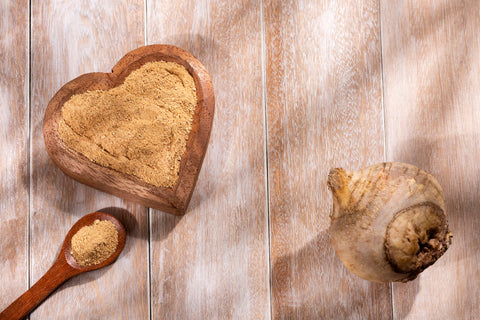
Maca (Lepidium spp.) and Male Fertility
Maca (Lepidium spp.) is an edible root plant in the Brassicaceae family that grows in the Andean region of Peru. The Andean population realized the beneficial nutritional and therapeutic properties of Maca approximately 1,300–2,000 years ago. In general, Maca is traditionally known to be supportive of those with anxiety, cognitive issues, fatigue, depression, osteoporosis, infertility, and sexual function concerns.5
Maca is exceptionally well-known for its fertility-enhancing properties when it is prepared using the traditional drying process. The traditional drying process is necessary for the formation of many bioactive metabolites that are not present in fresh Maca.5
Furthermore, there are at least 13 different phenotypes of Maca, including yellow, red, and black phenotypes. Therefore, the type of Maca and the preparation of the Maca may play a role in how supportive a Maca supplement is for a certain health concern.5
Animal studies show Maca may improve erectile dysfunction, libido (since it acts as an aphrodisiac), sperm count, sperm quality, sperm motility, semen production, the weight of the testes and epididymis, and the DNA fragmentation index.5
The results of human clinical studies are also impressive.
A 12-week double-blind, placebo-controlled, randomized, parallel clinical trial revealed Maca provided an improvement in sexual desire at 8 and 12 weeks of treatment in men. The Maca supplementation also improved mood, anxiety, and activity levels. A second double-blind, randomized clinical study performed on men with mild erectile dysfunction showed an improvement in the subjective perception of general and sexual well-being after 12 weeks of Maca supplementation.5
A third clinical study showed four months of Maca supplementation resulted in increased seminal volume, sperm count, motile sperm count, and sperm motility.6 A systematic review published in 2022 suggests Maca supports the reversal of antidepressant-associated sexual dysfunction.7
Maca has been used for centuries as a food and a supplement for its incredible nutritive and medicinal properties. Modern research confirms Maca supports male fertility and sexual health.5
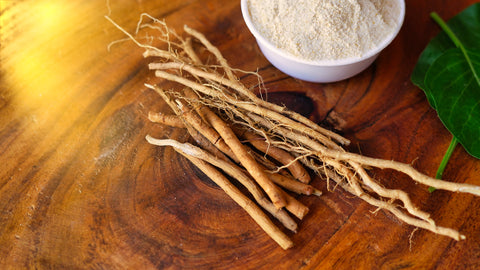
Withania Somnifera (Ashwagandha) Root, Testosterone, and Male Fertility
Ashwagandha (Withania somnifera) root is one of the most widely recommended herbs for the treatment of infertility and sexual dysfunction. Ashwagandha is a member of the Solanaceae family and is included in the monographs of medicinal plants identified by the World Health Organization (WHO).8
In Ayurvedic medicine, Ashwagandha has been used for a millennium as a “Rasayana” for longevity and bountiful health benefits. Ashwagandha root also has a long history of use as an adaptogen to combat stress and anxiety.8
Both research and traditional use show Ashwagandha root supplementation regulates metabolism and revitalizes the body. Modern research also shows Ashwagandha root extract supports immunomodulation, stress reduction, antioxidant activity, cardiovascular health, cardiorespiratory endurance, reduced inflammation, anti-tumor activity, anti-aging activity, reproductive health, and brain health.8
Ashwagandha contains more than 80 types of phytochemicals, including steroidal alkaloids, nonsteroidal alkaloids, steroidal lactones, essential and nonessential fatty acids, saponins, amino acids, minerals. flavonoids, glycosides, and essential oils.1
Out of all these components, the alkaloids, beta-sitosterol, withanosides, sitoindosides, withanolides, including withaferin A, and various amino acids like alanine have the most prominent effect on fertility status.1

Clinical studies on male fertility show Ashwagandha root enhances sperm quality indices, including sperm motility and sperm count. Ashwagandha also reduces the toxic effects of chemicals, heavy metals, and other poisons on the reproductive organs. Ashwagandha increases the weight of the reproductive organs, enhances spermatogenesis, and improves LH, FSH, and testosterone levels and balance. Sexual behavior indices also improve to a statistically significant extent after Ashwagandha root extract supplementation.1
A study by Shukla et al. assessed the effects of Ashwagandha root powder on men with normal and low sperm counts. After supplementation with Ashwagandha root powder supplement daily for three months, sperm parameters, including count and motility in sperm analysis, had significantly improved due to decreased apoptosis and reactive oxidative stress. Levels of copper, zinc, iron, and gold ions of seminal plasma also beneficially increased to boost semen quality in men with normal and low sperm counts.1
The effects of Ashwagandha root extract on infertile men were assessed in two additional clinical trials. After three months of daily supplementation with Ashwagandha root extract, infertile study participants enjoyed an improvement in semen quality, increased bioavailable levels of vitamins E, C, and A, and boosted fertility. The Ashwagandha root extract improved detoxification processes, decreased oxidative stress, and optimized testosterone production.1
Research also confirms Ashwagandha root extract offers a glowing safety profile. A recent randomized, placebo-controlled clinical study with healthy individuals concluded Ashwagandha root extract is safe, well-tolerated, and does not cause serious adverse events. All physical, hematological, and biochemical parameters measured in the healthy male and female participants remained within normal range throughout the study.8
Clinical trials and systematic reviews support the use of Ashwagandha root extract for male fertility concerns.

Infertility affects millions of couples globally. Many factors, including infections, hormone disorders, immune system concerns, and exposure to toxins, can disrupt the male reproductive system and cause male infertility.
If you and your doctor are considering botanical medicine as part of a comprehensive fertility protocol, the information in this blog post could support you on your journey. Always consult with a healthcare professional before beginning a new supplement routine, especially if you take medications or have underlying health conditions. Modern clinical research offers impressive evidence Ginger, Ashwagandha, and Maca may boost male fertility.*
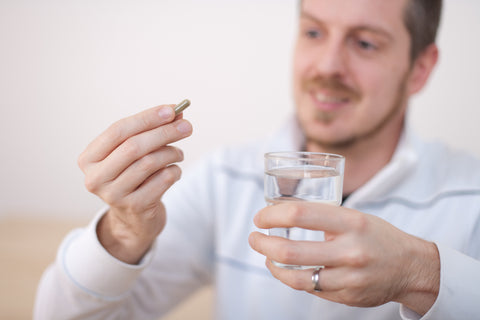
InterPlexus Supplements with Organic Ashwagandha Root Extract*
Adapt™ provides targeted B-vitamins, bioavailable minerals, and organic herbal extracts, including Ashwagandha, to support healthy adrenal function and fertility.*
B-KalmPlexus™ is a vitamin B-complex with bioavailable magnesium, Ashwagandha, and phosphatidylserine to support sustained energy levels and optimal fertility.*
Thyro-DyneTM provides iodine, targeted amino acids, and herbal extracts of organic Ashwagandha and guggul to support optimal thyroid function and reproductive health.*
References:
- Nasimi Doost Azgomi R, Zomorrodi A, Nazemyieh H, et al. Effects of Withania somnifera on Reproductive System: A Systematic Review of the Available Evidence [published correction appears in Biomed Res Int. 2019 Nov 21;2019:7591541]. Biomed Res Int. 2018;2018:4076430. doi:10.1155/2018/4076430
- Ballester P, Cerdá B, Arcusa R, et al. Effect of Ginger on Inflammatory Diseases. Molecules. 2022;27(21):7223. doi:10.3390/molecules27217223
- Banihani SA. Effect of ginger (Zingiber officinale) on semen quality. Andrologia. 2019;51(6):e13296. doi:10.1111/and.13296
- Gholami-Ahangaran M, Karimi-Dehkordi M, Akbari Javar A, et al. A systematic review on the effect of Ginger (Zingiber officinale) on improvement of biological and fertility indices of sperm in laboratory animals, poultry and humans. Vet Med Sci. 2021;7(5):1959-1969. doi:10.1002/vms3.538
- Tafuri S, Cocchia N, Vassetti A, et al. Lepidium meyenii(Maca) in male reproduction. Nat Prod Res. 2021;35(22):4550-4559. doi:10.1080/14786419.2019.1698572
- Gonzales GF, Cordova A, Gonzales C, et al. Lepidium meyenii (Maca) improved semen parameters in adult men. Asian J Androl. 2001;3(4):301-303.
- Concerto C, Rodolico A, Meo V, et al. A Systematic Review on the Effect of Nutraceuticals on Antidepressant-Induced Sexual Dysfunctions: From Basic Principles to Clinical Applications. Curr Issues Mol Biol. 2022;44(8):3335-3350. doi:10.3390/cimb44080230
- Verma N, Gupta SK, Tiwari S, Mishra AK. Safety of Ashwagandha Root Extract: A Randomized, Placebo-Controlled, study in Healthy Volunteers. Complement Ther Med. 2021;57:102642. doi:10.1016/j.ctim.2020.102642


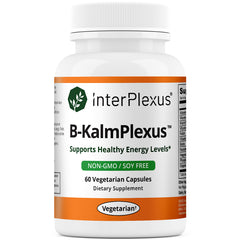
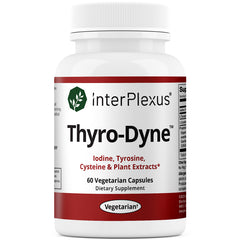
Leave a comment